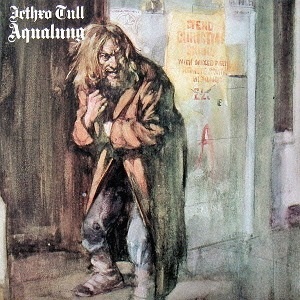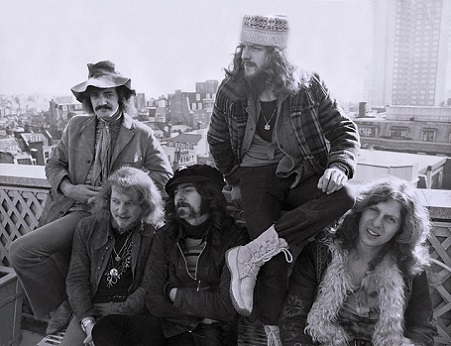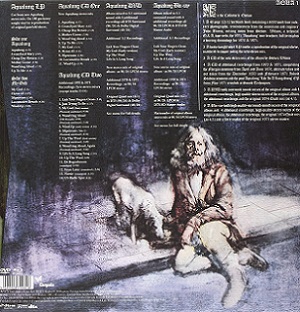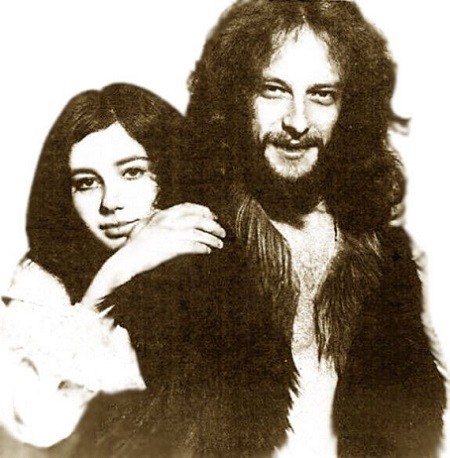March 1971 brought the release of Jethro Tull album Aqualung. The eleven song album reached number four in England and number seven in the United States, with the credited musicians for the studio album including Ian Anderson, Martin Barre, Jeffrey Hammond, John Evan and Clive Bunker. I am a fan of many of the songs from this album. Listen in with me in this appreciation.

The title song of the Aqualung album is the song Aqualung. As mentioned on the SongFacts website, Ian Anderson mentions that the song itself reflects “a guilt-ridden song of confusion about how you deal with beggars, the homeless.” The confusion of snapshots included in the song remain relevant today.
Cross-Eyed Mary takes a look into the spiritual side of what Ian Anderson describes in the main character, Mary, as “schoolgirl prostitute type.” As reviews on All Music for the album and with the opening songs, the album offers a conceptual addressing of what the band sees as “the hypocrisy of Christianity in England.”

Cheap Day Return belies the concept that the songs of the Aqualung album are a cohesive statement on spirituality, at least as I am taking this introduction into the song Mother Goose. The song offers real world feelings of love for one’s father and the care he is given, juxtaposed against the fame that Ian Anderson as singer and songwriter experiences.
Mother Goose continues to offer a progressive rock musical feel to a message that picks up where Cross-Eyed Mary left off considering the lifestyle placed upon school aged girls and the circus atmosphere described overall. The juxtaposition nursery rhymes imagery alongside circus and human exploitation are jarring.
Wond’ring Aloud offers a wistful feeling of the feeling of love in a relationship, as I hear the song in isolation. There’s a warm sense of glee and joyful acceptance of what is good in a relationship.
I here the song Up To Me in isolation rather than with an aim to find its meaning within the continuity of the larger theme of the Aqualung album. With this perspective, I hear a man taking personal accountability for his own choices, including the self-reflection and spiritual meaning he aims to ascribe to the actions of others or himself. Therefore, live with what moral consequences are the due of the singer and his mates.

My God opens the second side of the Jethro Tull album Aqulung. This song definitely gets into a concept that I hear within the larger construct of the album in speaking for moral justice, societal justice, and for the sense of God as a moral being. There is a definite criticism of religion, which I take from Ian Anderson’s perspective as the writer of this song to mean, as was stated with Cross-Eyed Mary, English Christianity.
With Hymn 43, I think American Christianity comes front and center for a closer look into the misinterpretation of the message and meaning of God. Interspersing a sense of Hollywood into the narrative makes the point clearly for me.
Slipstream feels like a bridge from one American excess with Hymn 43 into another with Locomotive Breath. I personally hear an echo of New Testament verse Matthew 19:24, which has Jesus Christ saying this: “Again I tell you, it is easier for a camel to go through the eye of a needle than for someone who is rich to enter the kingdom of God.”

Locomotive Breath reflects an out of control train in the specific, yet society in general with a lack of systemic, societal, or personal discipline in aiming to collectively control the train for what is just, good, in the image of God. It is near the end of the song that, lyrically, Ian Anderson as the narrator of Locomotive Breath sees Old Charlie is God. Hence, the concept of a spiritual tone to Aqualung the album, too, feels clear.
Wind-Up makes his notion of formal religion exceptionally clear, moving from any doubt that he was in favor of God and the formal religion of England or the United States and would dispenses with the second. For Jethro Tull as a band and Ian Anderson specifically, dispense with the hypocrisy, do right by the word of the bible and the notion of God, and forget the claims of the church.
I hope that you’ve enjoyed this look and listen into the album Aqualung by Jethro Tull.
Matt – Monday, May 10, 2021
